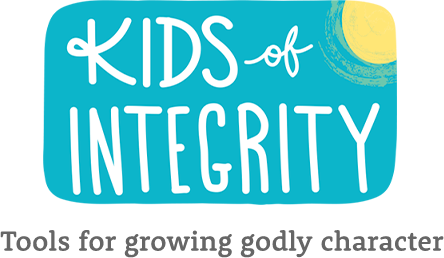Compassion

Bible stories
This section provides a number of Bible stories with the theme of compassion, along with questions you can use to guide family discussions. Choose one or more stories that are appropriate for your children.
If the Bible passage is too complex for your children, paraphrase the story yourself or use the summary provided under “key concepts.”
Hungry mouths and hungry hearts
Read Mark 6:34-44 and Matthew 15:29-39.
Questions for discussion
- Have you ever seen a stray dog?
- What does a stray dog look like?
- How do you feel when you see an animal that is lonely or hungry?
- What do pets need from people?
- Would your pet be happy if you fed it, but never loved it?
- Why did Jesus have compassion for the people?
- What kind of miracles did Jesus do for the people?
- What would happen to sheep that did not have a shepherd to care for them?
Key concepts
When we care for our pets we don’t just feed them, we also love them. To care deeply for the needs of another person or creature is an expression of our love for them. This tender concern is called compassion.
The Bible tells us that Jesus had compassion for people. We know that Jesus was concerned about those who were sick and hurting, because He healed those who were blind, crippled and unable to speak.
Jesus was also concerned about the physical needs of people who were not ill. In this story, Jesus told His disciples that He was concerned that the people had not eaten for a long time and might collapse on their way home, so He fed them before He sent them home (Matthew 15:32).
Jesus was concerned about people’s spiritual needs too. He saw that the people were like sheep without a shepherd (Mark 6:34). Mark says, “He began to teach them many things.” Although we don’t know exactly what He taught them, based on what Jesus said elsewhere in the Bible, we can guess that He was likely telling them about God’s amazing love, eternal life and the importance of loving and obeying God, and of loving each other.
Note: The verses below give some examples of Jesus’ teaching.
Relevant Scripture
John 3:16-17 “For God so loved the world, that He gave His only Son, that whoever believes in Him should not perish but have eternal life. For God did not send His Son into the world to condemn the world, but in order that the world might be saved through Him.
”
Matthew 7:21 “Not everyone who says to Me, ‘Lord, Lord,’ will enter the kingdom of heaven, but the one who does the will of My Father who is in heaven.
”
Mark 12:29-31 “Jesus answered, ‘The most important is, “Hear, O Israel: The Lord our God, the Lord is one. And you shall love the Lord your God with all your heart and with all your soul and with all your mind and with all your strength.” The second is this: “You shall love your neighbor as yourself.” There is no other commandment greater than these.’
”
John 14:2-3 “In My Father’s house are many rooms. If it were not so, would I have told you that I go to prepare a place for you? And if I go and prepare a place for you, I will come again and will take you to Myself, that where I am you may be also.
”
John 14:5-7 “Thomas said to Him, ‘Lord, we do not know where You are going. How can we know the way?’ Jesus said to him, ‘I am the way, and the truth, and the life. No one comes to the Father except through Me. If you had known Me, you would have known My Father also. From now on you do know Him and have seen Him.’
”
Generous hearts
Note: This Bible story works well in conjunction with the hands-on option “walking in their shoes.”
Read Acts 10:1-8 and Acts 9:36-43.
Questions for discussion
- How was Cornelius’ family described?
- What did Cornelius do regularly?
- How was Dorcas described?
- Why do you think the people were sad when she died?
- How would you describe your family?
- Can you think of some ways we can care for the needs of people in our community?
Key concepts
The Bible says that Cornelius’ family was careful to try to live in a way that pleased God. It also says that Cornelius gave generously to those in need and prayed to God regularly (Acts 10:2).
Dorcas was another person who was well known for all the kind things she did for others and for the way she showed concern for the poor. When Dorcas died, the widows came and showed Peter all the clothing she had made for them.
If you ask God for ways that your family can care for others within your town or city, expect that God will show you a special job that He wants your family to do. It might be shovelling a snowy sidewalk for a widow or helping her with yardwork. You might also want to search out organizations that distribute used clothing and household items to people who need them.
Relevant Scripture
Matthew 25:40 “And the King will answer them, ‘Truly, I say to you, as you did it to one of the least of these My brothers, you did it to Me.’
”
Worse than dirt!
Note: Kids will have fun acting out this Bible story with stuffed toys. Sprinkle a stuffed animal with some baking soda to represent it being “unclean.” Have the sprinkled stuffy call out Unclean! Unclean! to warn the other animals to stay away or risk becoming “diseased.” Let another stuffed animal who is playing the part of Jesus use a vacuum cleaner to “heal” the diseased stuffed animal.
Read Leviticus 13:45-46 and Luke 5:12-13.
Questions for discussion
- If you rolled in the mud, what would your mom or dad say?
- Would your mom hug you if you were covered in mud?
- What would she ask you to do?
- How would you feel if you got dirt on your skin that wouldn’t come off, even after a bath?
- In Bible times, where did the people who had skin diseases have to live?
- Why did they have to go and live by themselves?
- How would you feel if you could not live in your home with your family?
- Why do you think Jesus touched the man who had leprosy?
- Do you know anyone who could be considered an outcast?
- How can you share Jesus’ love with him or her?
Key concepts
When we are dirty, others generally don’t want to touch us. But we can get clean by taking a bath. Leprosy is a highly contagious skin disease. Having leprosy is like having permanently dirty skin that no one wants to touch.
In Bible times, people who had infectious skin diseases like leprosy had to live outside the city so their disease would not be passed on to other people. Luke tells a story of a man with leprosy who came to see Jesus, begging Jesus to cure his leprosy. The Bible says that Jesus was filled with compassion for the man and that He reached out His hand and touched the man. Jesus said, “Be clean!” and the man was healed (Luke 5:12-13).
Jesus did more than feel sorry for the man. He saw the man’s painful situation and did something about it. When we show concern for and meet the needs of those who are hurting, we are being like Jesus.
Relevant Scripture
1 John 4:21 “And this commandment we have from Him: whoever loves God must also love his brother.
”
Forgiving others shows compassion
Read Matthew 18:21-35, Ephesians 2:4-5, 1 Timothy 1:15-17 and Titus 3:5.
Questions for discussion
- How did the servant’s master take pity on him?
- Did the servant then take pity on his fellow servant?
- What happened to the servant who refused to have pity on his fellow servant?
- How does God show us mercy?
- Can you think of a real-life example of when we could be like the unkind servant?
- How does God expect us to show mercy to each other?
Key concepts
Jesus’ disciples asked Him how many times they should forgive each other. In reply, Jesus told a story about a king who was settling accounts with his servants.
One servant owed the king a great deal of money. When the king asked for the money, the servant begged for mercy and the king had pity on him and cancelled his debt. But just after having his debt cancelled, that same servant went and found another servant who owed him a small amount of money. He demanded that his money be paid back immediately. The indebted servant asked for some time to get the money, but the other servant had him thrown in prison.
As you can imagine, when the king heard about this, he had the first servant thrown in prison himself. Jesus ended the story by saying, “So also My heavenly Father will do to every one of you, if you do not forgive your brother from your heart” (Matthew 18:35).
At times we can be tempted to be like the unmerciful servant. Imagine if a child spilled milk on their father’s work papers by mistake, and the father forgave the child. What if, moments later, a sibling accidentally spilled water on that same child’s toy, but they were unwilling to forgive their brother or sister?
To refuse to forgive is being unmerciful. Jesus tells us that God is like the king: He shows us compassion by forgiving us all our sins. God wants us to forgive others as He has forgiven us. When Jesus taught the disciples to pray He prayed, “Forgive us our debts, as we also have forgiven our debtors” (Matthew 6:12). We show compassion when we forgive each other.
Relevant Scripture
Matthew 6:12 “. . . and forgive us our debts, as we also have forgiven our debtors.
”
Ephesians 4:32 “Be kind to one another, tenderhearted, forgiving one another, as God in Christ forgave you.
”
God’s gift of mercy
Read Luke 2:1-32.
Questions for discussion
- What does a mother or father do when their child is sick?
- Why did Mary and Joseph take Jesus to the temple?
- Who was Simeon?
- Who was Simeon waiting for?
- What did Simeon say when he saw Jesus?
- Do you know what the word “salvation” means?
Key concepts
It’s natural for parents to care compassionately for their children. When a child is not well, their parents ensure they get proper medical treatment. Sometimes the child needs bedrest. Other times, they need medicine. In some cases, the sick child must be taken to a doctor.
Romans 3:23 tells us that we have all sinned. Our sin is like a sickness in our hearts and Jesus is like the doctor. He offers us mercy in the form of forgiveness. God forgives our sins and can help us get rid of the sin in our lives.
In the story of Simeon, when Simeon saw Jesus, he said he had seen God’s “salvation” (Luke 2:30). This reference to the word for salvation in the Greek language is soteria or soterion, meaning deliverance, safety and health. God sent His Son, Jesus, to deliver us. Jesus is the “cure” for the “sickness” of sin in our lives.
Relevant Scripture
Mark 2:17 “And when Jesus heard it, He said to them, ‘Those who are well have no need of a physician, but those who are sick. I came not to call the righteous, but sinners.’
”
Romans 3:22b-24 “For there is no distinction: for all have sinned and fall short of the glory of God, and are justified by His grace as a gift, through the redemption that is in Christ Jesus.
”
1 John 1:9 “If we confess our sins, He is faithful and just to forgive us our sins and to cleanse us from all unrighteousness.
”
Soft-hearted and open-handed
Read Deuteronomy 15:7-11.
Note: Have a coin or some other small treasure for each child to hold in their hands during this story.
Questions for discussion
- Imagine you have a treasure in your hand and that I am going to take it from you. What are you going to do to stop me?
- How did God say the Israelites were to treat those who are poor?
- What do you think being “open-handed” means?
- How is being hard-hearted connected to being tight-fisted?
- Do you think there are any poor people in the world?
- How about in our own town/city? Do any poor people live here?
- Can you think of something we can do to help the poor people?
- What does the Bible tell us that God will do for those who are generous?
Key concepts
If we are trying to hold on to something small, we usually protect it by making a clenched fist. The Bible uses the terms “hard-hearted” and “tight-fisted” to describe someone who is unwilling to share with the poor. Alternatively, a person who is generous is called “open-handed.”
God wants us to find joy in sharing what we have with others, especially with those who have very little. When we show compassion and kindness through giving to the poor, God notices and it pleases Him.
Relevant Scripture
Deuteronomy 15:7 “If among you, one of your brothers should become poor, in any of your towns within your land that the Lord your God is giving you, you shall not harden your heart or shut your hand against your poor brother . . .
”
Proverbs 19:17 “Whoever is generous to the poor lends to the Lord, and He will repay him for his deed.
”
Matthew 5:7 “Blessed are the merciful, for they shall receive mercy.
”
- Acceptance
- Adaptability
- Attentiveness
- Christmas
- Compassion
- Confidence
- Consideration
- Contentedness
- Cooperation
- Courage
- Courtesy
- Discernment
- Easter
- Faithfulness
- Forgiveness
- Generosity
- Gentleness
- Gratitude
- Harmony
- Honesty
- Humility
- Joy
- Kindness
- Obedience
- Patience
- Perseverance
- Respect
- Responsibility
- Reverence
- Righteousness
- Self-control
- Thanksgiving

